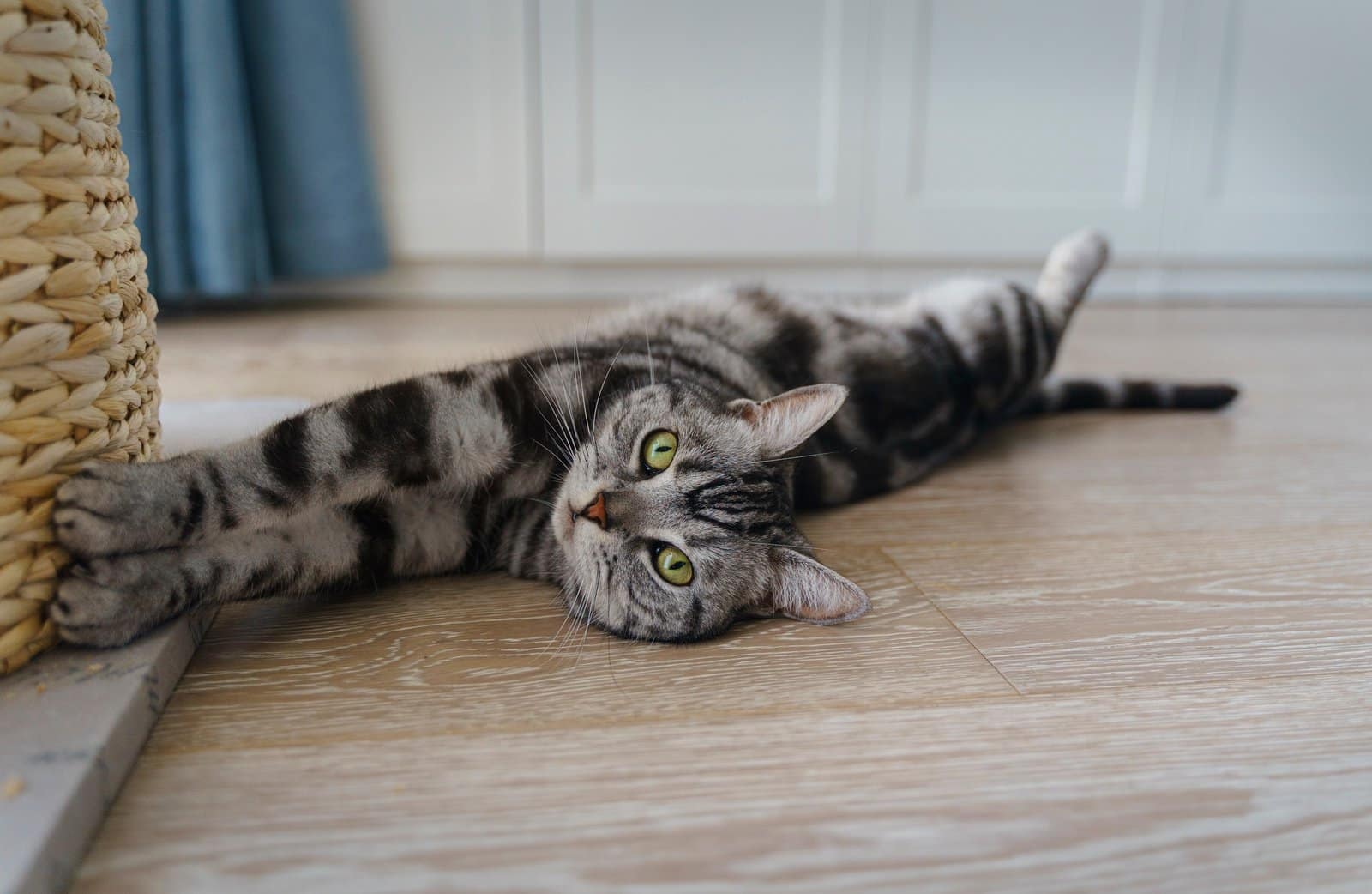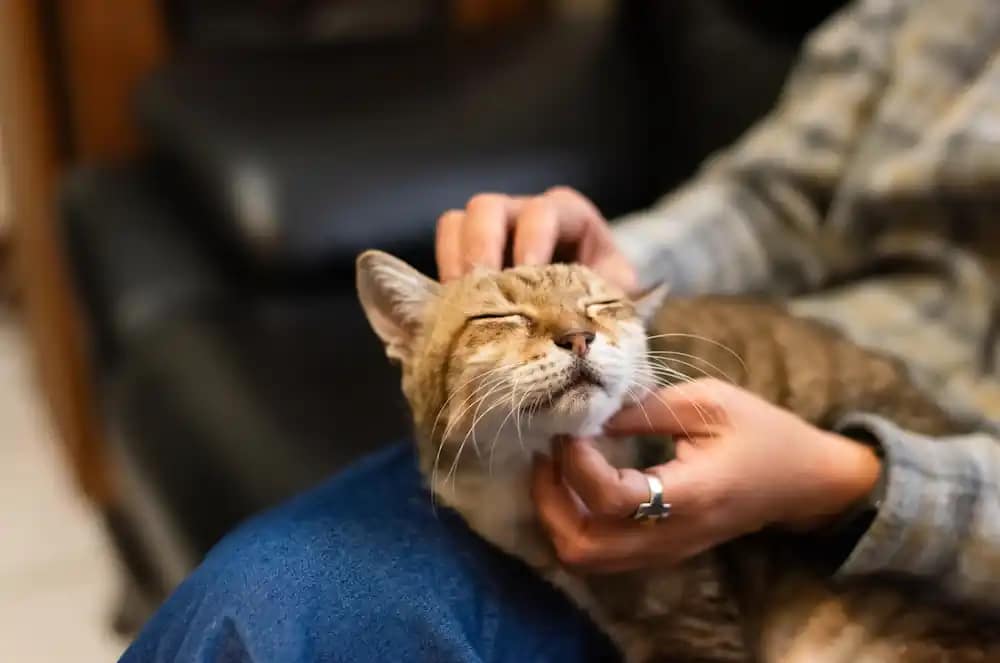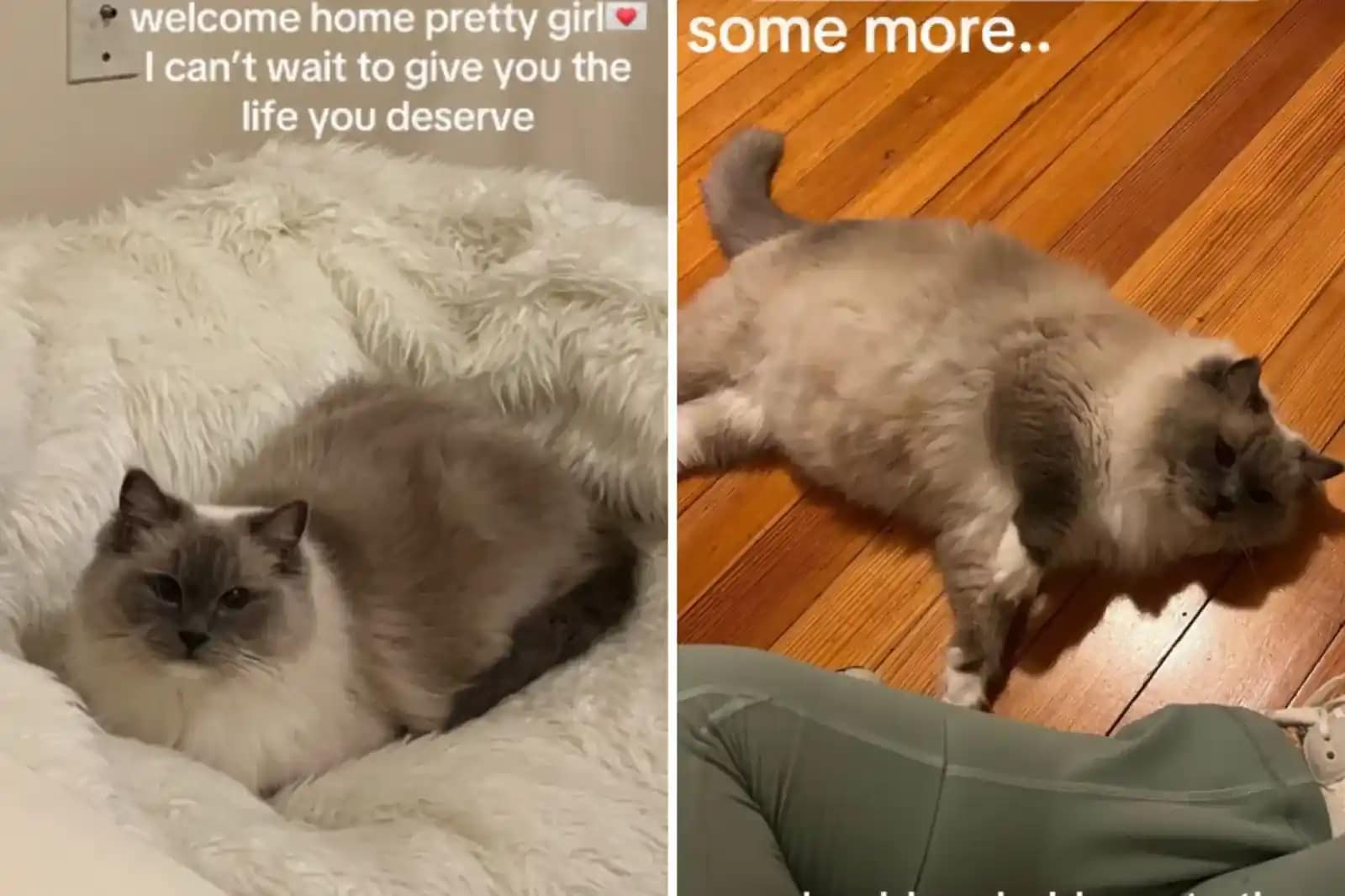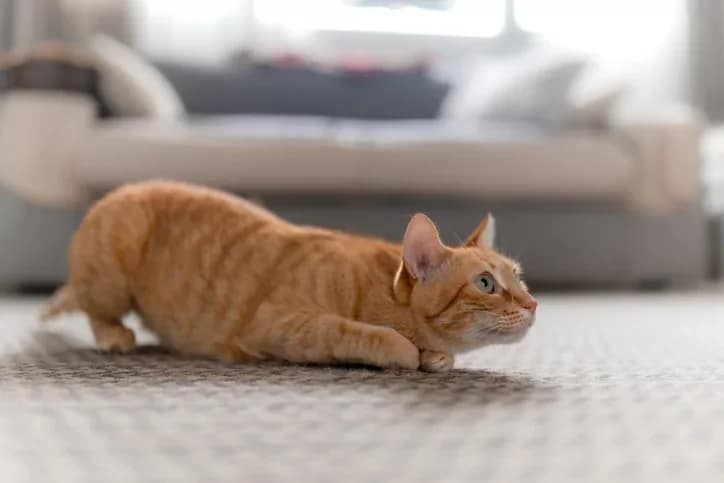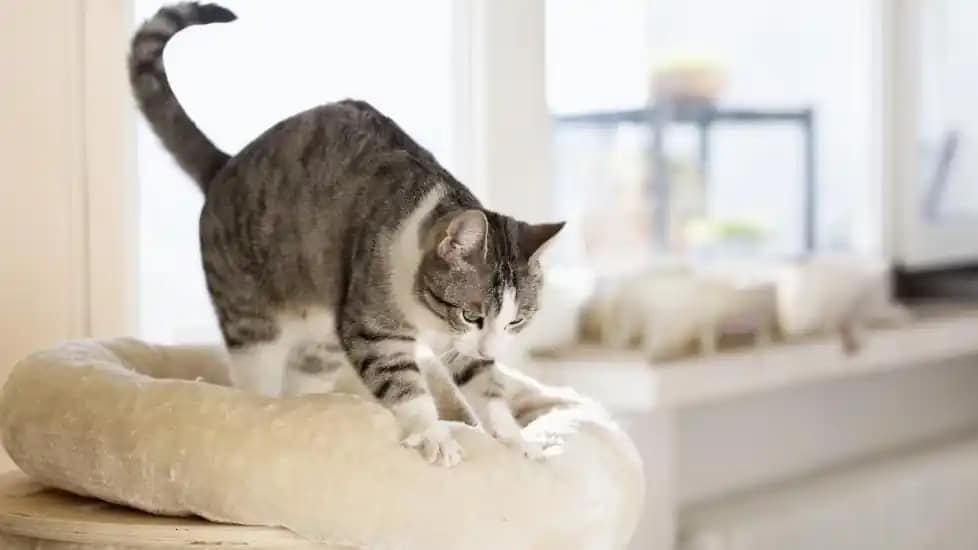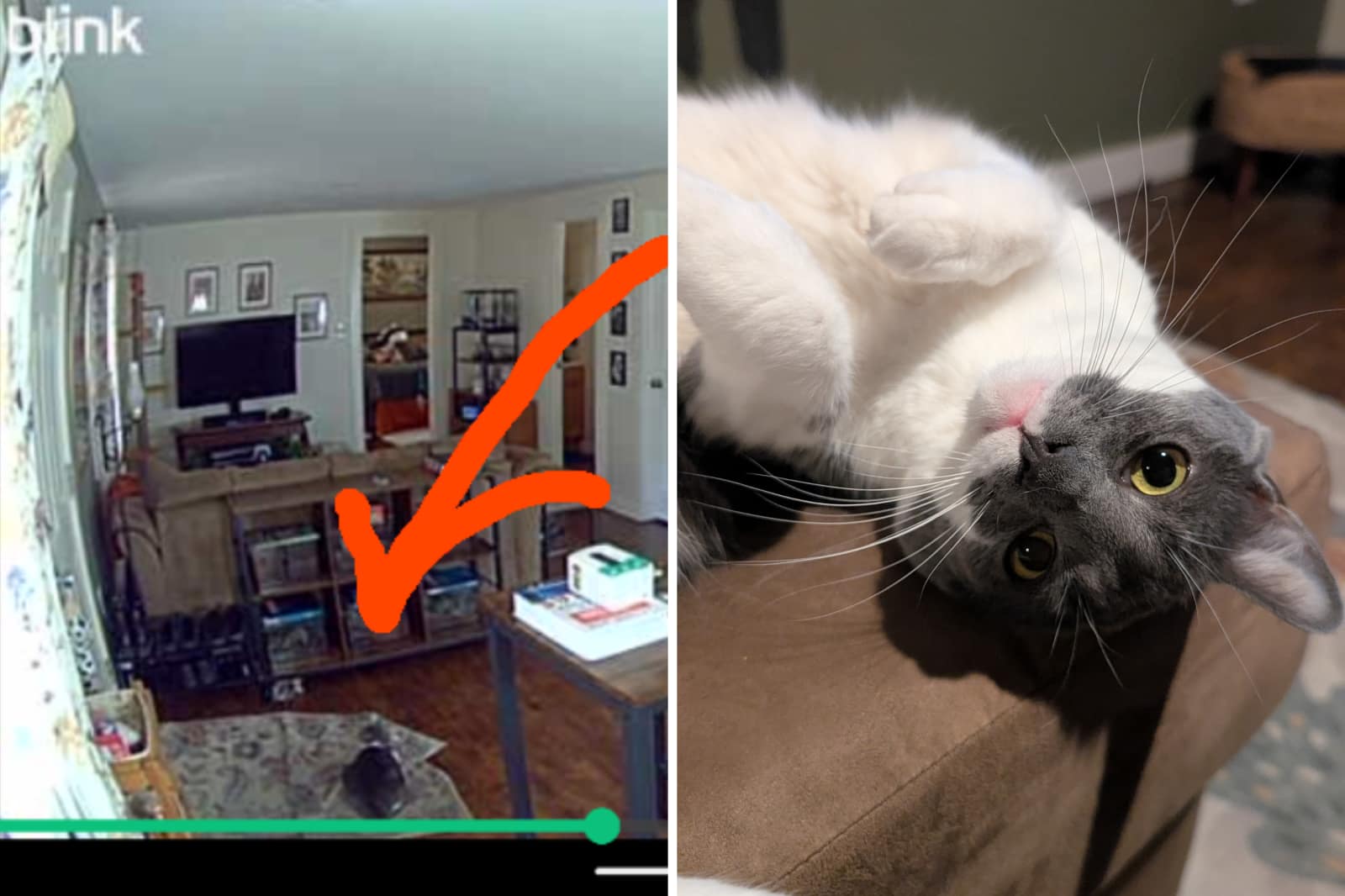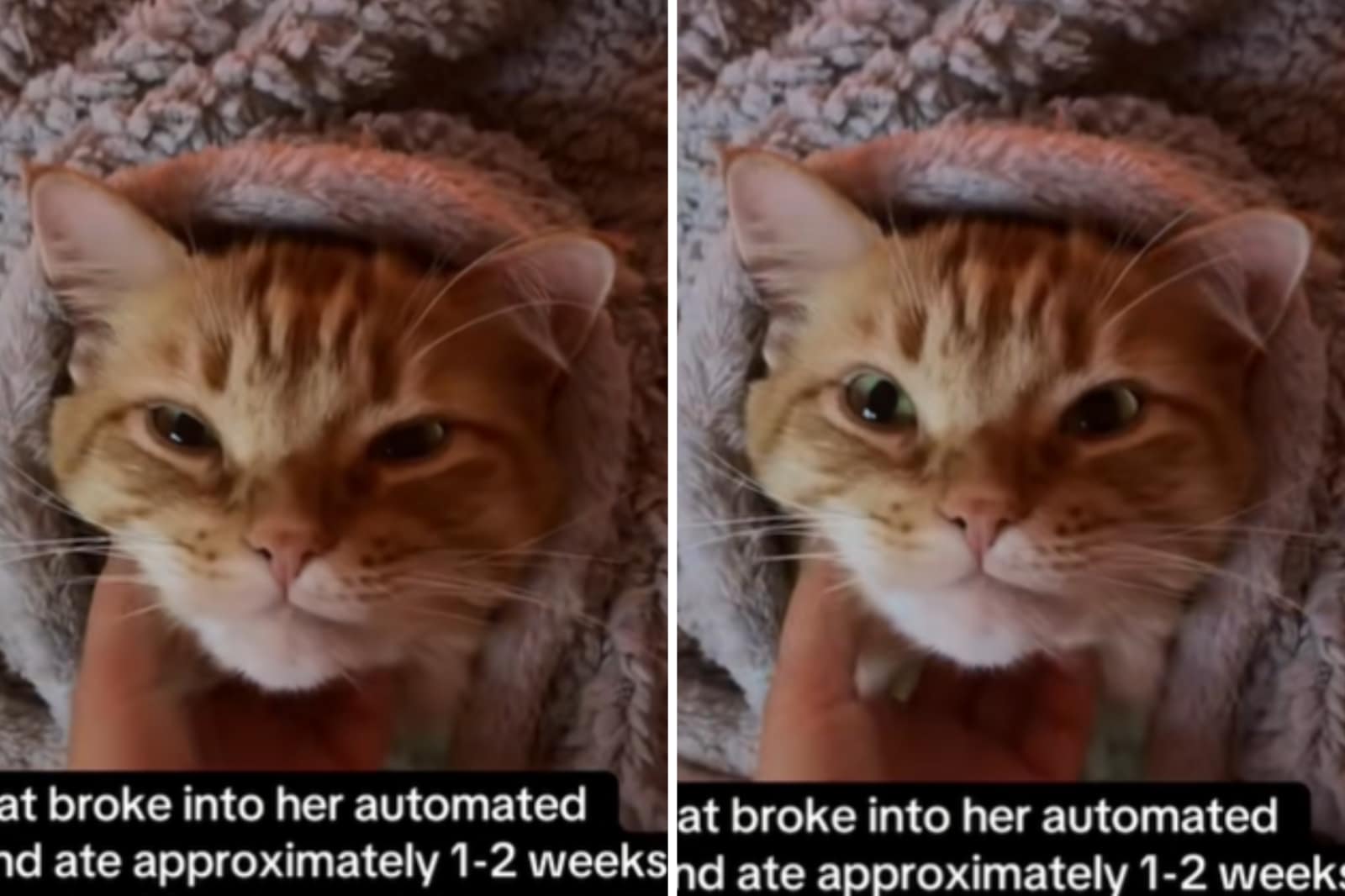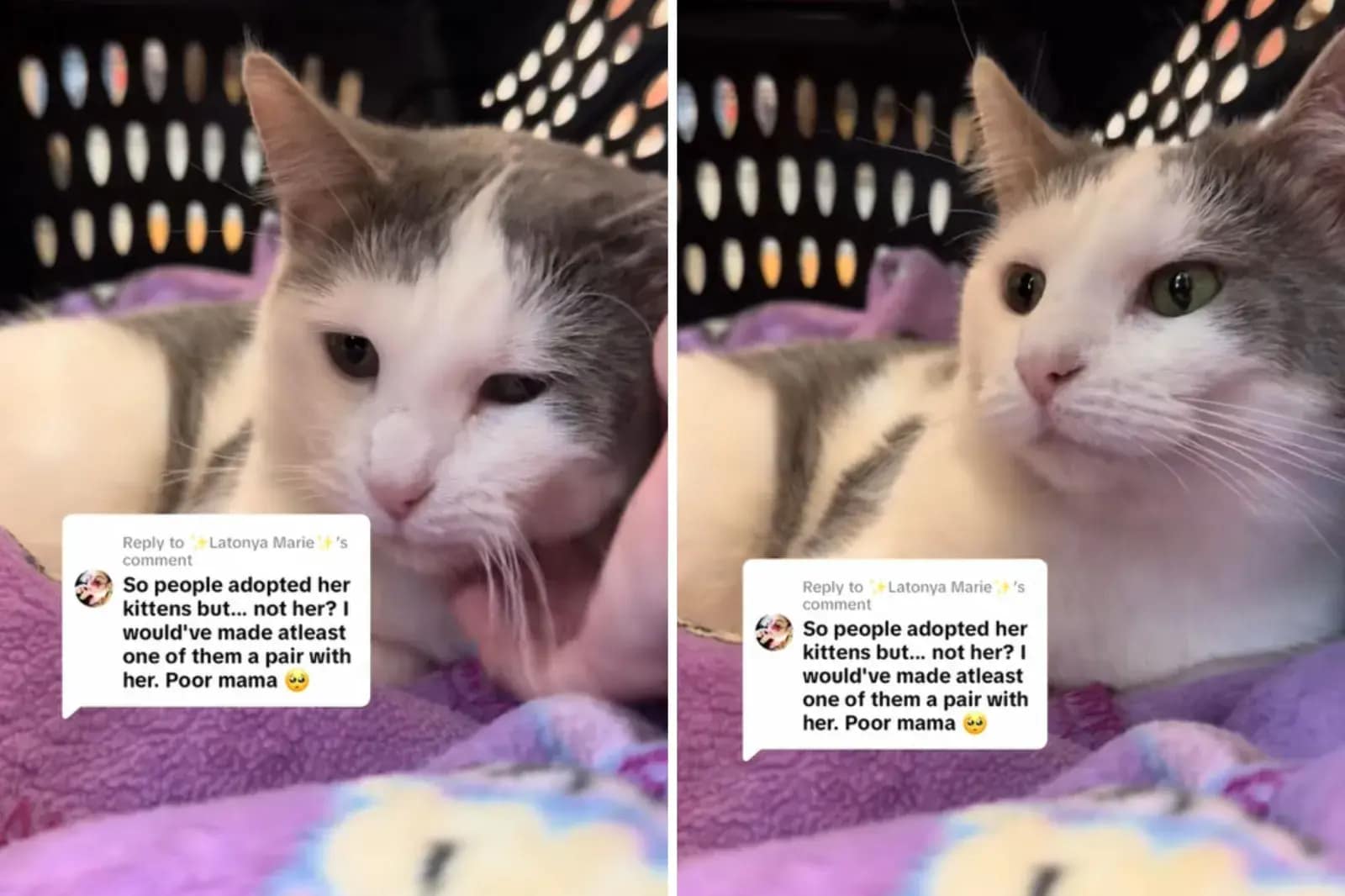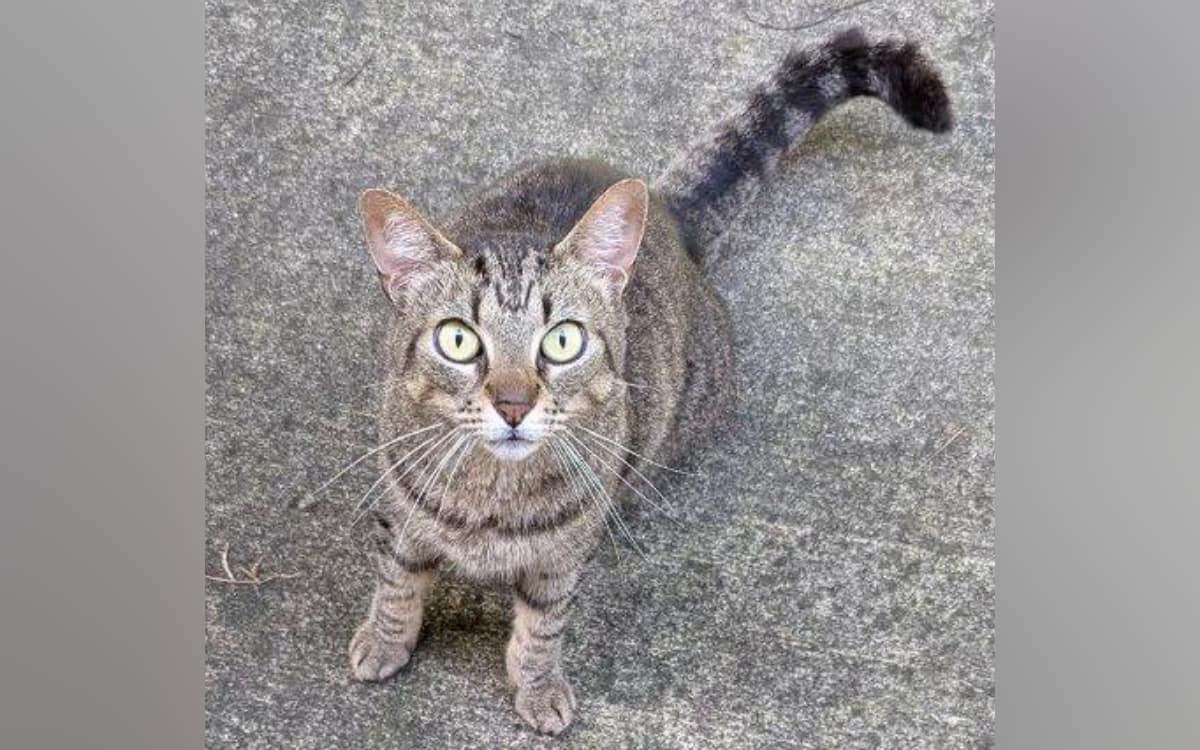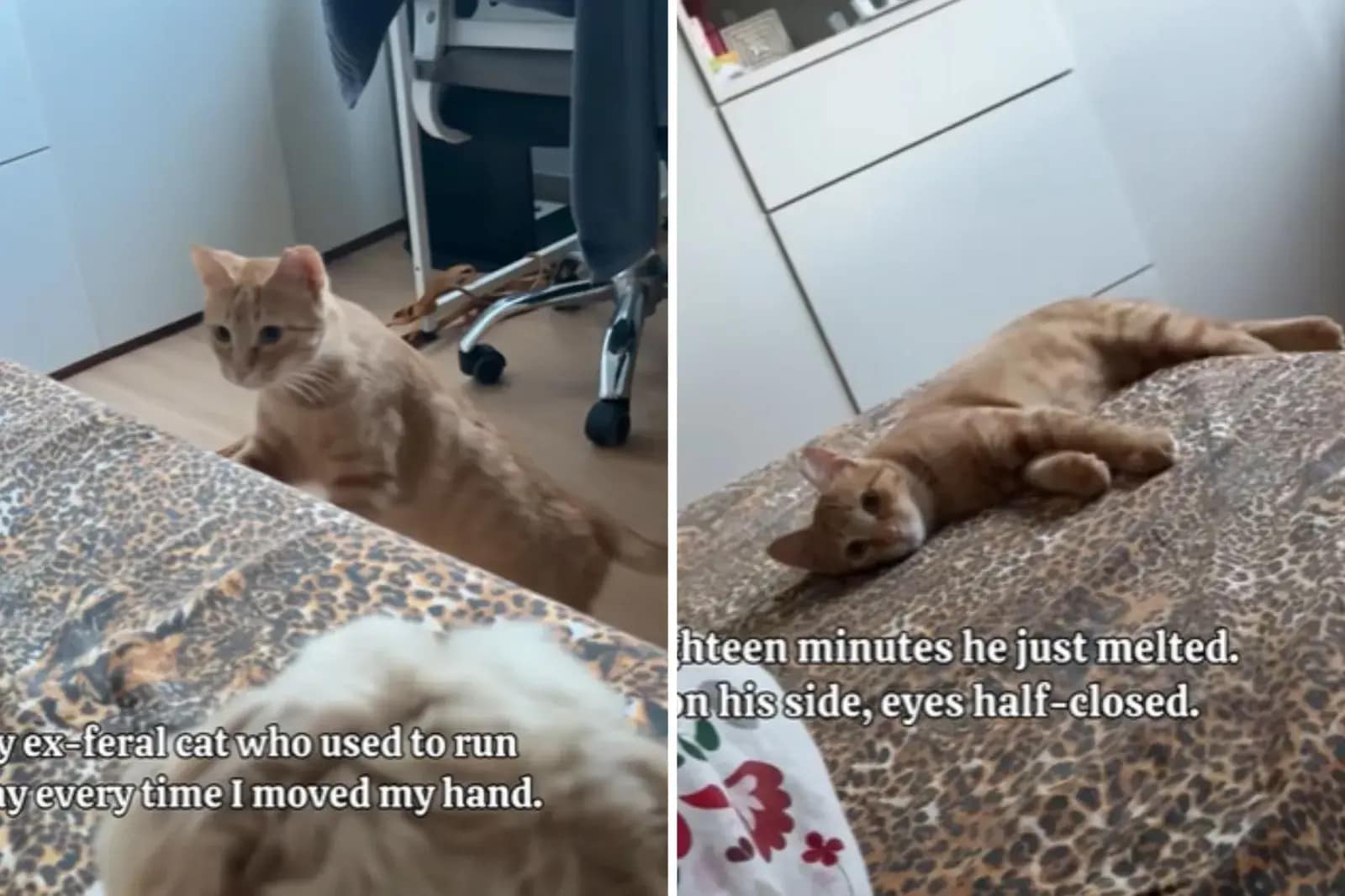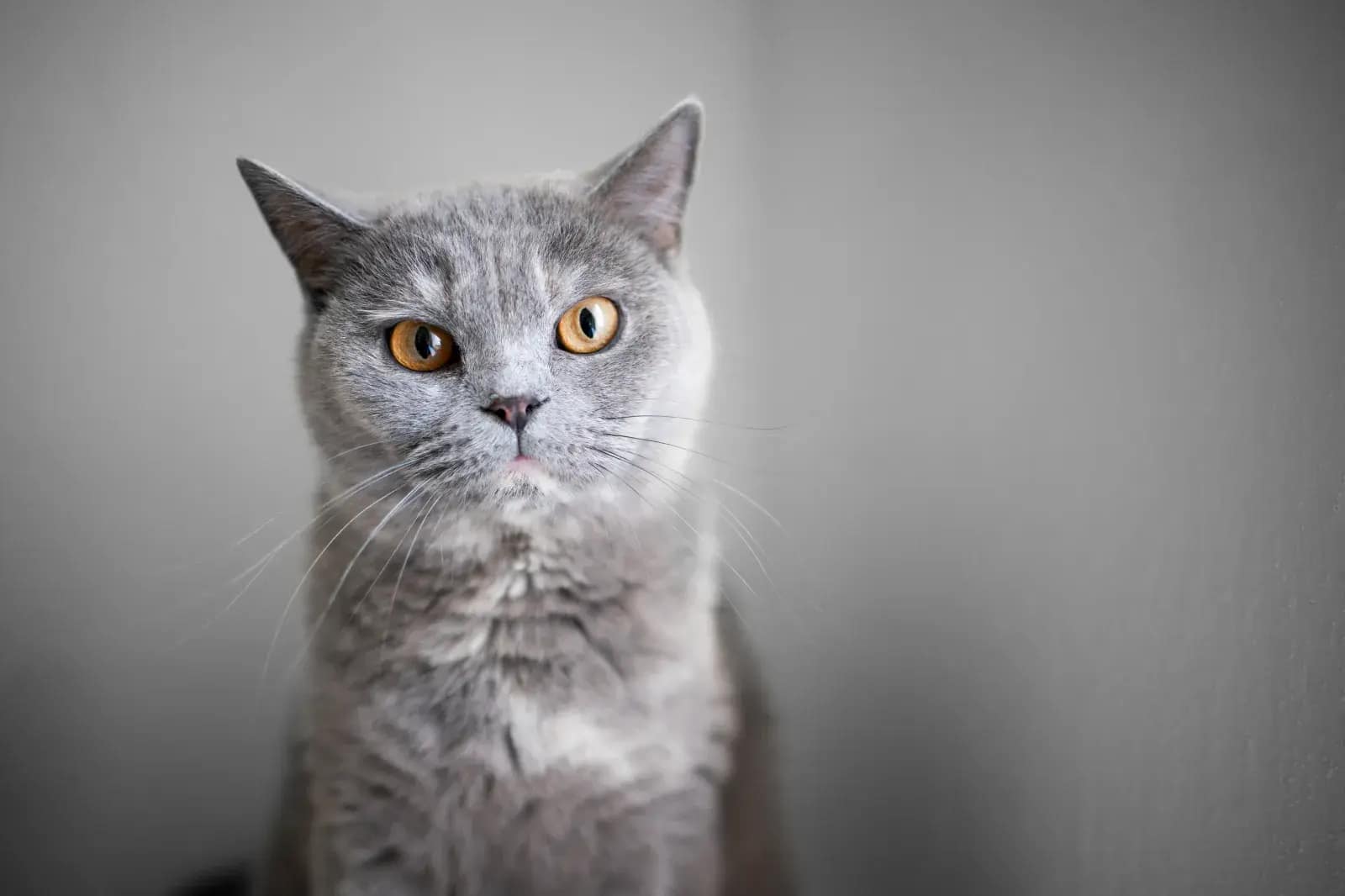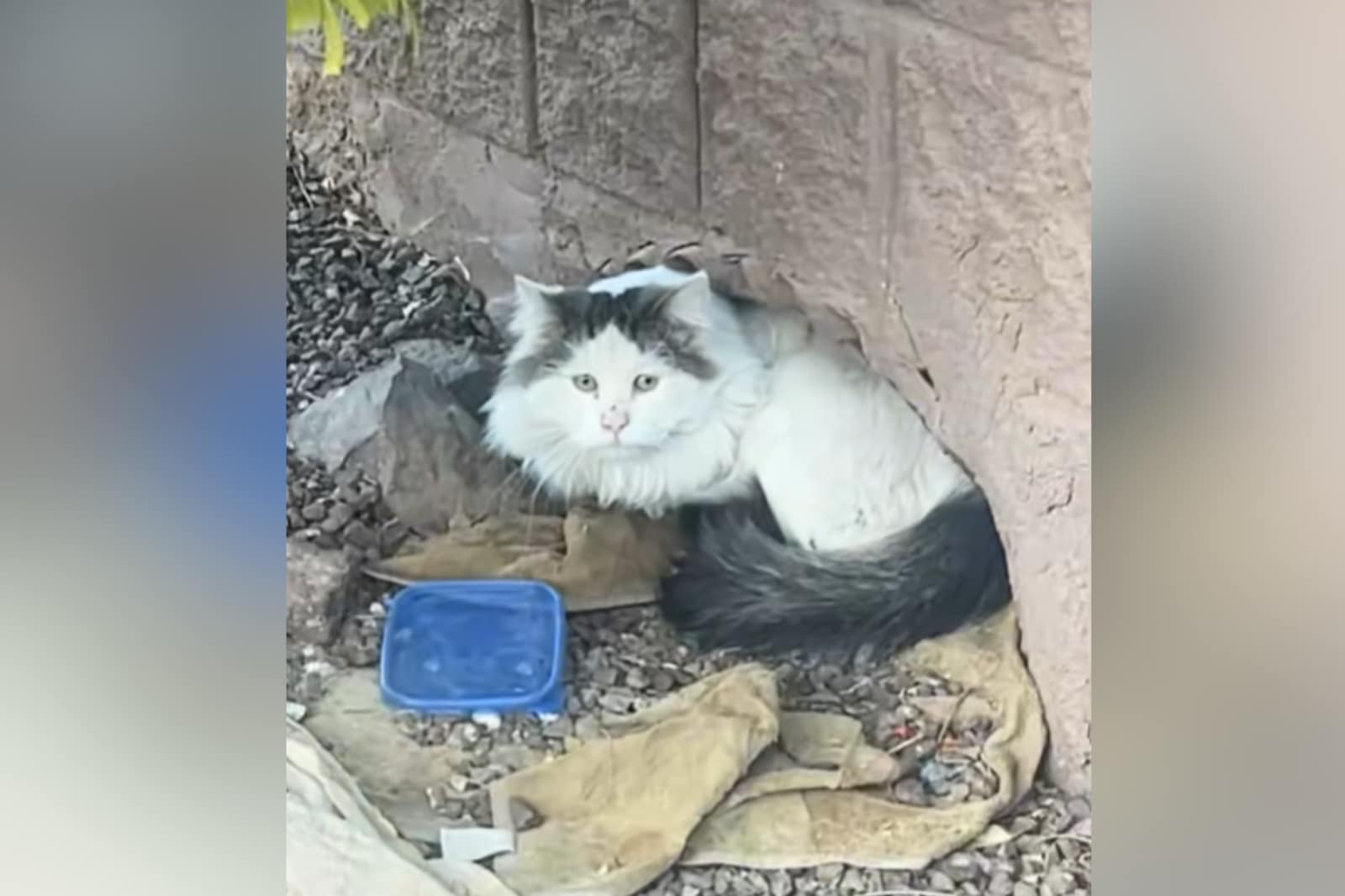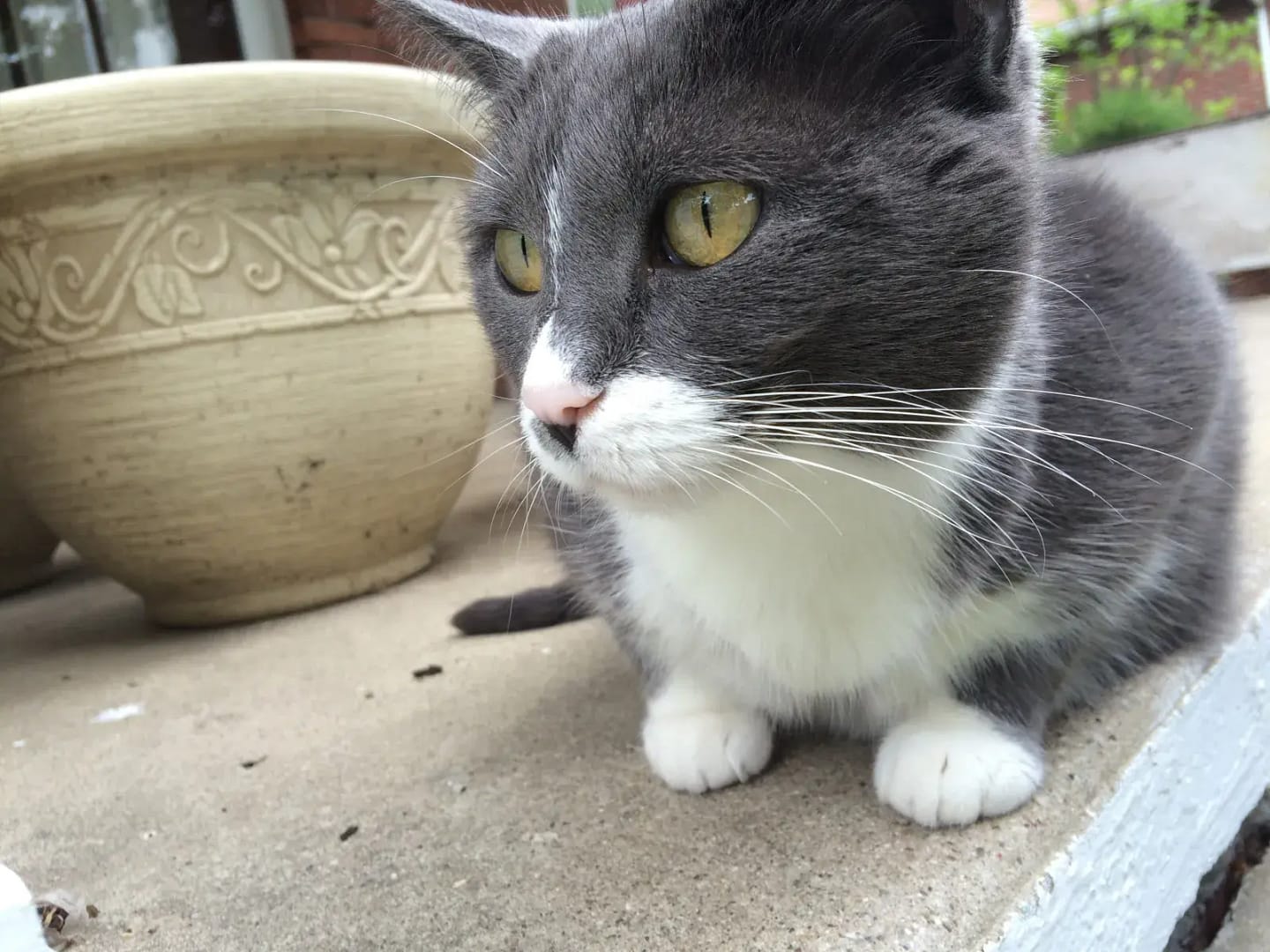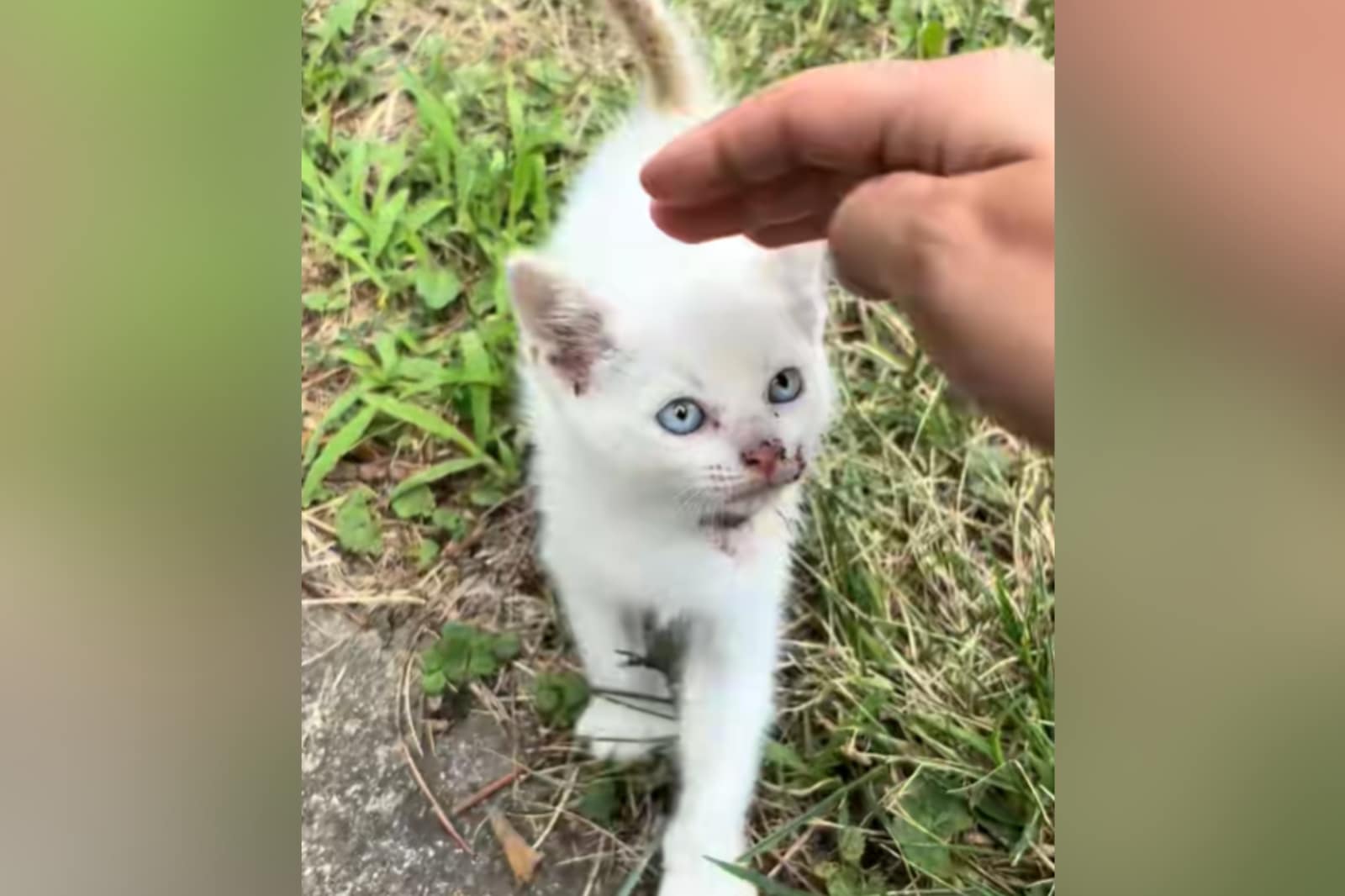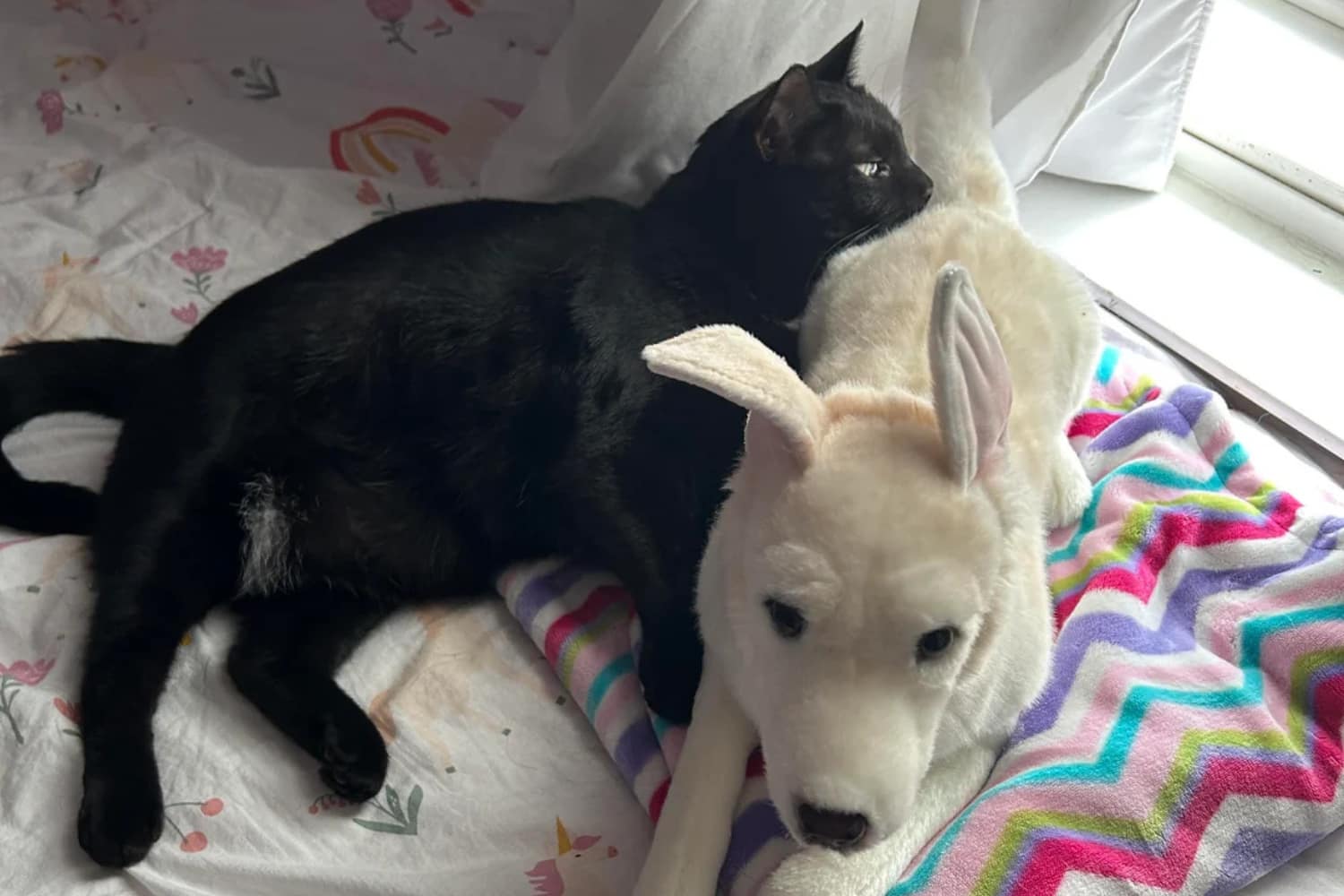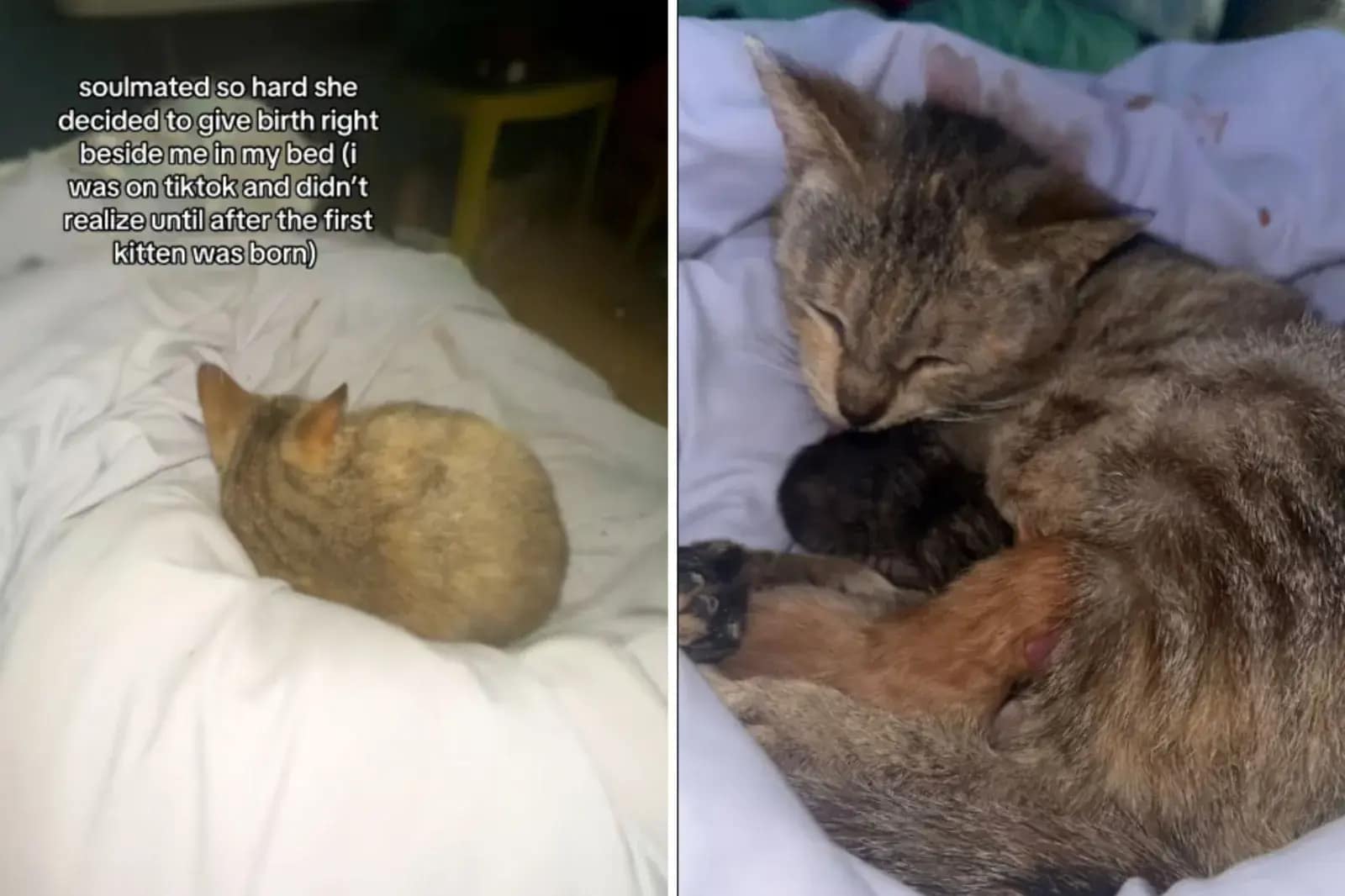Welcome to the World of Hypoallergenic Cats
If you’ve been longing to cuddle a cat without the constant sneezing, you’re in the right place. We understand the challenge of loving cats when you or a family member suffers from allergies, and we’re here to help you find a purr-fect solution.
While no cat breed is 100% allergen-free, certain breeds are known to produce fewer of the proteins (like Fel d 1) that trigger most cat allergies. In other words, these “hypoallergenic” cats may give off fewer allergens or shed less, meaning you can enjoy more snuggles and fewer sniffles.
In this guide, we’ll introduce you to ten beloved domestic cat breeds often recommended for allergy sufferers. We’ll start with a quick overview of each breed’s key traits, then dive into what makes each one special – and how to tell if a particular breed could be your ideal snuggle companion.
Our goal is to share our expertise in a warm, practical way, so you can confidently choose a feline friend that fits your home and lifestyle. Let’s explore the wonderful world of hypoallergenic cats together!
Quick Glance: Hypoallergenic Cats
Here’s a quick look at 10 popular hypoallergenic cat breeds and some of their key traits at a glance:
| Breed | Key Personality Trait | Grooming Needs | Energy Level |
|---|---|---|---|
| Siberian | Affectionate & Playful | High (weekly brushing) | High |
| Balinese | Intelligent & Loving | Moderate (weekly brushing) | High |
| Russian Blue | Quiet & Devoted | Low (occasional brushing) | Moderate |
| Devon Rex | Mischievous & Social | Low (minimal shedding) | High |
| Cornish Rex | Energetic & Affectionate | Low (minimal shedding) | High |
| Sphynx | Extroverted & Affectionate | Moderate (regular baths) | High |
| Oriental Shorthair | Chatty & Curious | Low (minimal grooming) | High |
| Javanese (Colorpoint Longhair) | Vocal & Playful | Moderate (regular brushing) | High |
| Siamese | Vocal & Affectionate | Low (occasional brushing) | High |
| Bengal | Active & Intelligent | Low (short coat upkeep) | Very High |
(Grooming Needs refer to how much brushing/bathing is required. Energy Level indicates how active the breed typically is.)
Meet Your Cat: 10 Delightful Breeds
Siberian
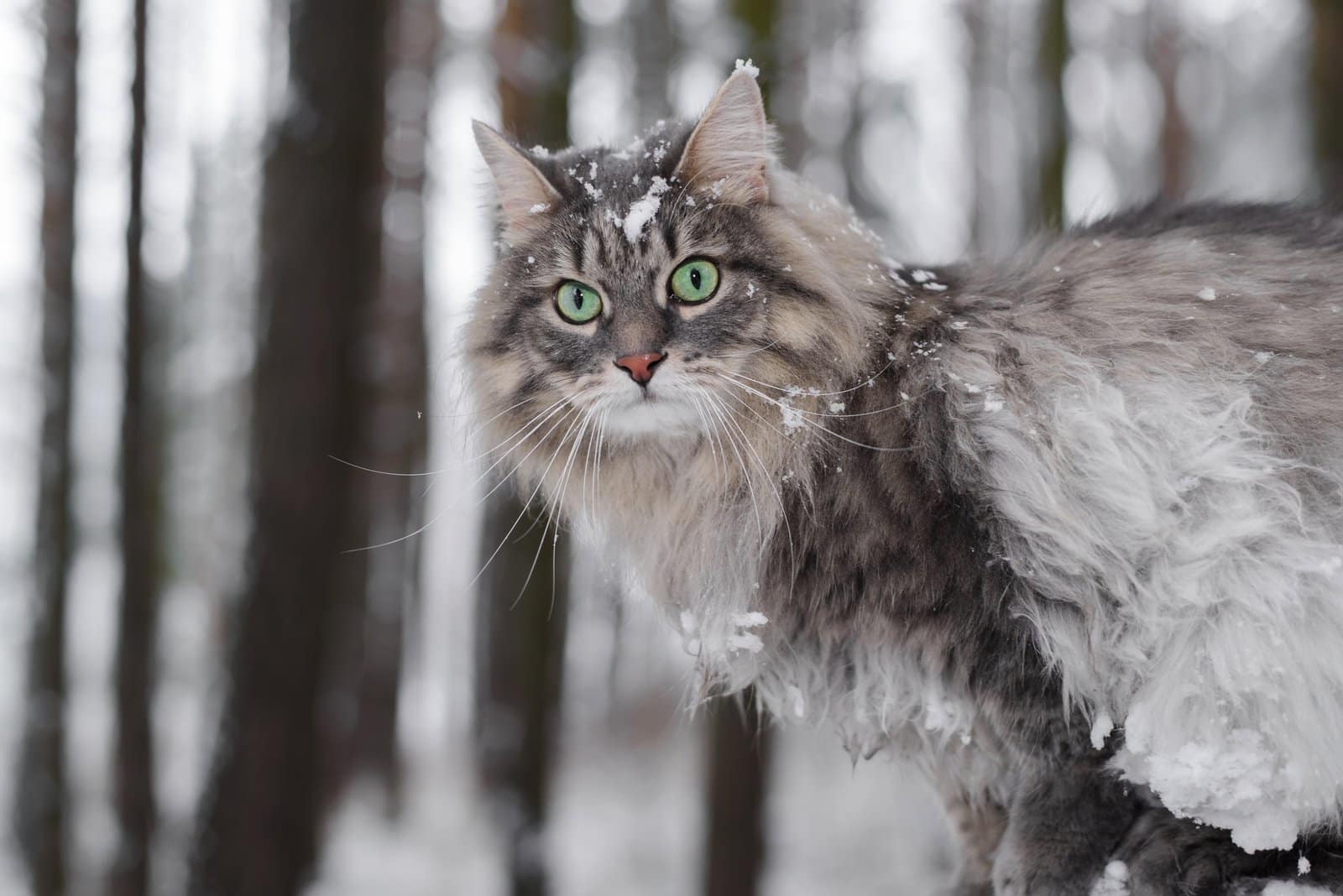
Their Unique Charm
The Siberian is often the first breed mentioned for cat lovers with allergies, and with good reason. Despite their luxuriously thick, long coat, Siberian cats naturally produce lower levels of the allergen-causing proteins than many other breeds.
In fact, these fluffy “forest cats” are surprisingly allergy-friendly for many people. Beyond their hypoallergenic reputation, Siberians are famously friendly and affectionate family cats.
They adore being part of the household and are as playful as they are loving – you might find your Siberian happily chasing toys one minute and curling up in your lap the next. Just be aware that all that gorgeous coat does require upkeep: a thorough combing about once a week will keep their fur (and the dander) under control.
We’ve found that grooming time can actually be a fun bonding experience with these gentle giants, who typically enjoy the attention.
Is This Your SnuggleSoul?
If you’re looking for a warm-hearted, adaptable family cat, a Siberian could steal your heart. They tend to get along well with children and even other pets, thanks to their patient and sociable nature.
Siberians are moderately high in energy – they love a good play session and even appreciate having some climbing space (a tall cat tree is a great idea!) – but they also have a mellow, cuddly side when playtime is over.
Keep in mind you’ll need to keep up with grooming; if you don’t mind brushing a fluffy coat weekly and vacuuming a bit of fur, the affectionate Siberian will return your care with endless love. Many allergy-prone owners report that Siberians don’t trigger their symptoms as much as other cats, so this breed can be a wonderful snuggle partner for someone who usually can’t be around cats.
We’d still suggest spending time with a Siberian before adoption to ensure you personally have minimal reaction – every allergy sufferer is different, but this breed gives you a very promising chance at a sneeze-free friendship.
Read more about Siberian
Balinese

Their Unique Charm
Often called the “long-haired Siamese,” the Balinese combines elegant looks with an easygoing coat and low allergen output.
It’s almost hard to believe a cat this silky and graceful could be hypoallergenic, but Balinese cats have a single-layered, fine coat that doesn’t mat easily and doesn’t shed as much as thicker double-coated breeds. Even more importantly, Balinese cats are known to produce less of the Fel d 1 allergen protein than the average cat, which means they’re less likely to set off your allergies.
Beyond the allergy science, Balinese are bright, inquisitive, and affectionate companions. They are closely related to Siamese cats and share that breed’s love of conversation and people.
A Balinese will “talk” to you with soft chirps and meows, follow you from room to room, and even show off their smarts – this breed is quite intelligent and can learn tricks or play fetch with a bit of training. They have a fun-loving, sometimes kitten-like personality well into adulthood, which makes them a joy to live with.
Is This Your SnuggleSoul?
If you want a cat that’s interactive, intelligent, and loving, a Balinese could be your ideal match. We often recommend this breed to families and first-time cat owners alike, because Balinese tend to be friendly with everyone – including gentle with kids and welcoming to other pets.
They bond closely with their humans, so expect yours to be a near-constant companion at your side (or on your lap!). In terms of care, Balinese do have that medium-long coat, so a weekly brushing will help keep them looking regal and reduce any loose hair around the house.
Luckily, grooming a Balinese is usually easy since they have less undercoat and they enjoy the attention. With their high energy, Balinese cats appreciate plenty of playtime and stimulation – puzzle toys, feather wands, and interactive play will keep them happy.
If you’re willing to engage with an active, communicative cat and you’re looking for one that’s known to be easier on allergies, the Balinese might just be your perfect snuggle soul mate.
Read more about Balinese
Russian Blue
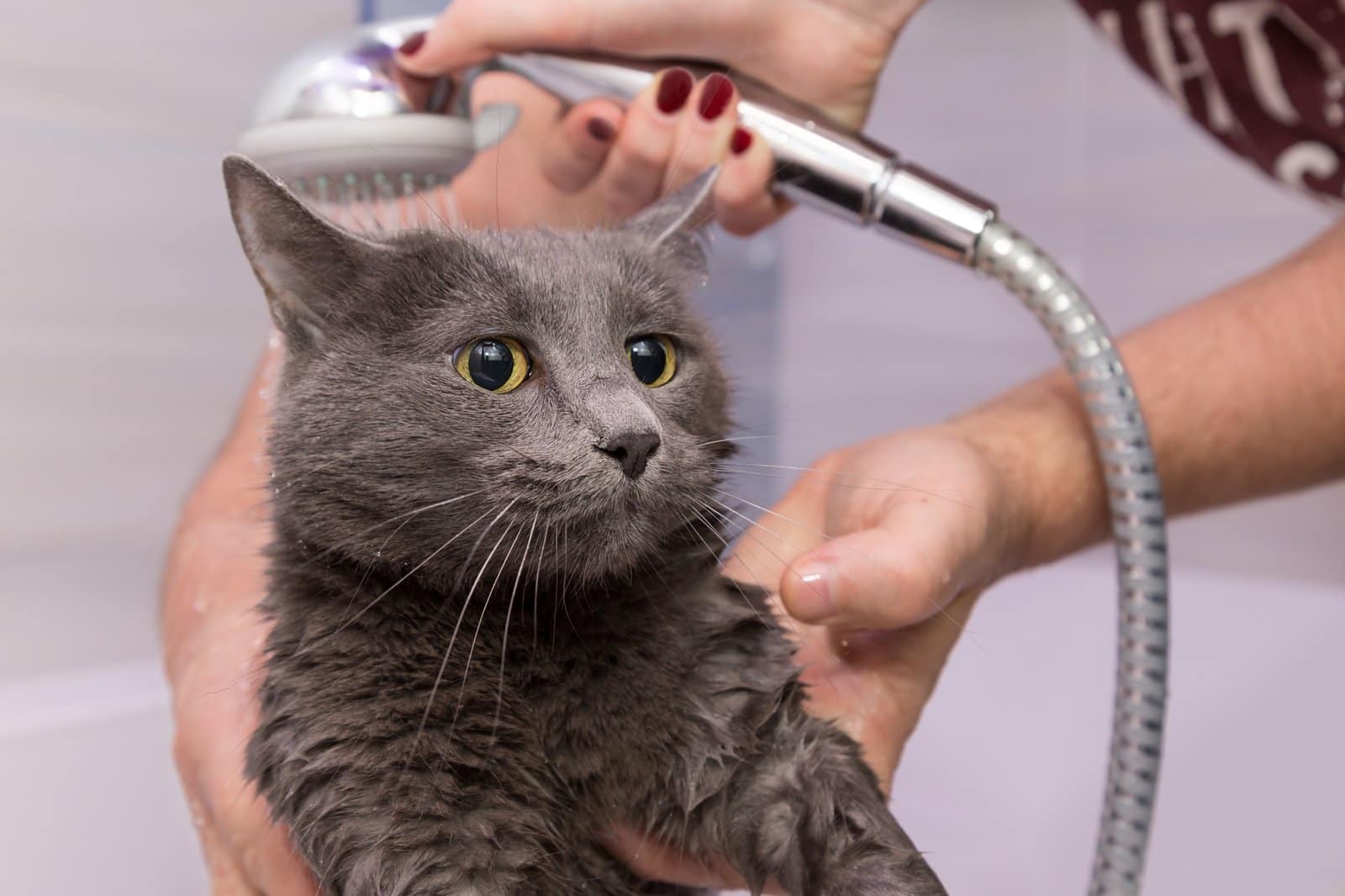
Their Unique Charm
The Russian Blue is the quiet charmer of the hypoallergenic cat world. These cats have a short, dense blue-gray coat that sheds less than most – and interestingly, they are noted for producing lower amounts of the Fel d 1 allergen compared to other breeds.
In practical terms, that could mean fewer allergens floating around your home. But the appeal of a Russian Blue goes well beyond allergen levels: they are famously gentle, calm, and loyal cats. A Russian Blue often forms a deep bond with their family and shows affection in subtle, sweet ways (like head-butting your hand or curling up nearby).
They tend to be soft-spoken and reserved; you won’t get loud, yowling demands for attention with this breed. In fact, Russian Blues can be a bit shy with strangers and may watch new people from a distance until they feel comfortable.
Their temperament is often described as polite and somewhat dignified, but when it’s just you and your Blue at home, you’ll see their playful side emerge. They love a good routine and appreciate gentle play, and while they have bursts of kitten-like energy, they’re generally not as hyper as some other breeds.
Is This Your SnuggleSoul?
A Russian Blue could be your snuggle soulmate if you prefer a more laid-back, quiet companion. This breed is ideal for someone who wants an affectionate pet but not a clingy shadow.
Russian Blues are content to entertain themselves for parts of the day – they’ve even been called a bit “loner” in the sense that they can enjoy their own company if you’re at work. So if you have a 9-to-5 job or a generally calm household, a Russian Blue will likely adapt well and greet you happily (with perhaps a gentle purr and that famous slight smile on their face) when you come home.
They thrive in a peaceful environment and may not enjoy a boisterous, chaotic household as much, so keep their sensitive nature in mind. For allergy sufferers, the Russian Blue’s lower shedding and allergen production is a big plus – many people with mild cat allergies have reported doing well with this breed.
Just remember, you’ll still want to keep up regular cleaning and perhaps use air purifiers, but a Russian Blue gives you a very good chance at a comfortable, low-allergy companionship. If you’re ready for a gentle, endearing friend who will quietly stick by your side, the Russian Blue may be “the one.”
Read more about Russian Blue
Devon Rex
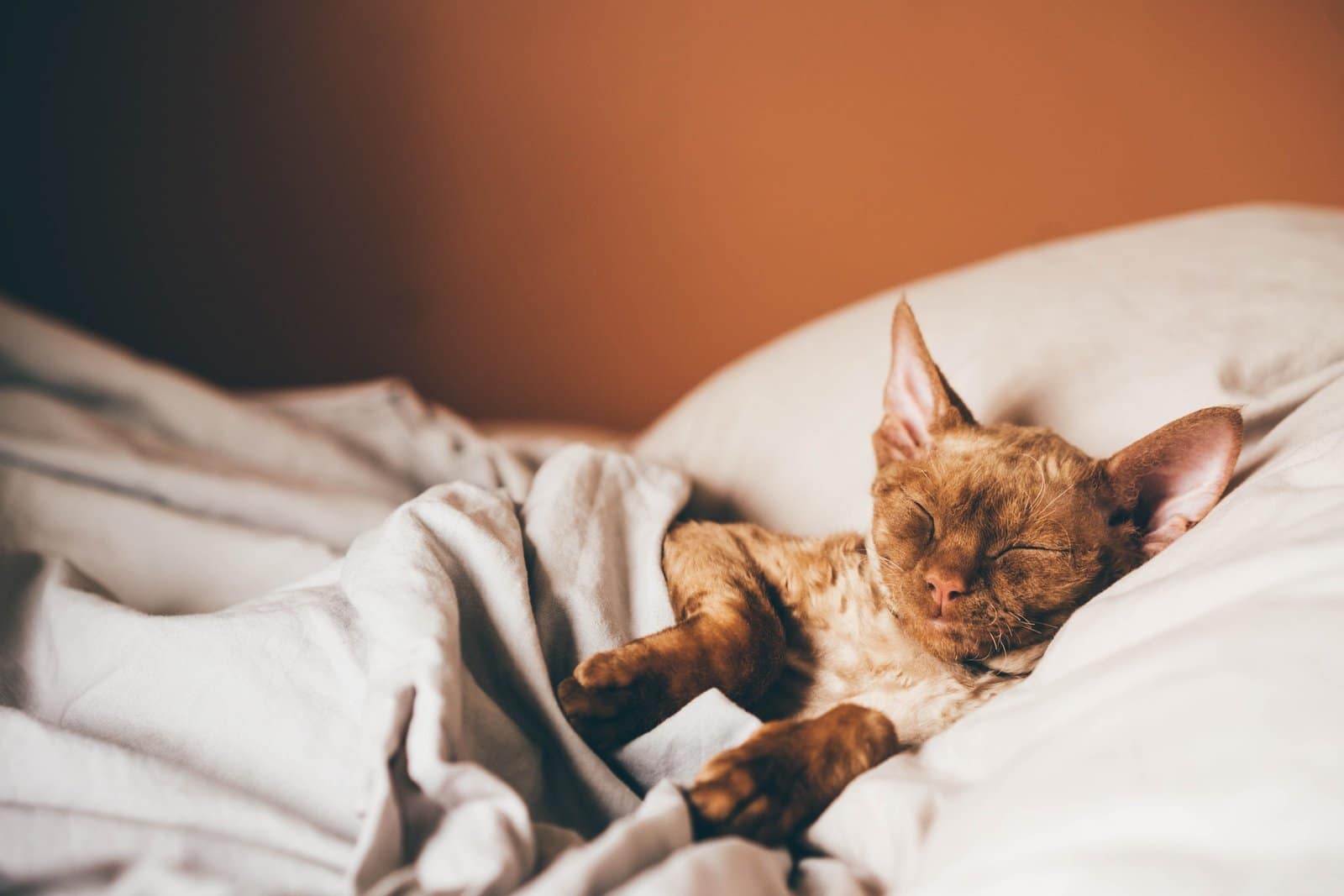
Their Unique Charm
The Devon Rex might just be the mischief maker you never knew you needed. With its oversized ears, impish eyes, and wavy coat, the Devon Rex has a unique pixie-like appearance – and a personality to match.
This breed’s coat is very short and curly, lacking the typical guard hairs that most cats have. The result? Much less shedding and dander floating around, which is great news for allergy sufferers.
In fact, the Devon Rex sheds even less than its cousin, the Cornish Rex, making it one of the lowest-shedding breeds you can find. But the Devon’s true charm is how affectionate, intelligent, and people-oriented these cats are. They absolutely adore their humans and tend to form very strong bonds.
Don’t be surprised if your Devon Rex follows you from room to room, perches on your shoulder, or snuggles under the covers with you at night. They’re often described as clowns or monkeys because they love to play and explore every nook and cranny of the house.
Devon Rexes will climb, jump, and get into amusing antics to keep you laughing. They are highly intelligent, so puzzle toys and training games can keep their clever minds occupied. Just be aware – they crave a lot of attention and interaction. A Devon Rex doesn’t like to be ignored or left alone for long; their social nature means they want to be involved in everything you do.
Is This Your SnuggleSoul?
Consider a Devon Rex if you’re looking for a playful partner in crime who will be with you at all times. These cats are a fantastic choice for someone who wants an active, engaging pet and has plenty of time and love to give.
Because Devons need a lot of attention from their family, they do best in homes where people are around often, or where there’s another friendly pet to keep them company. If you work from home or have a household with multiple family members alternating in and out during the day, a Devon Rex will relish the company.
They are great with kids and other pets, generally, because any playmate is a good thing in their eyes. One practical perk: their low-shedding coat means you won’t find much hair on your furniture or clothes, and many allergy-sensitive folks find Devons very tolerable.
However, you should still plan on occasional grooming – some Devon Rex cats can accumulate oils on their skin (since they don’t have a lot of fur to absorb it), so a quick wipe-down or gentle bath now and then keeps them clean. If you can meet this breed’s need for affection and play, you’ll gain a devoted little shadow who fills your days with humor and heart.
A Devon Rex is not the best choice if you’re often away from home for long hours (they might get lonely or into trouble out of boredom), but for an attentive owner, this cat will repay you with endless love and entertainment.
In short, the Devon Rex is a snuggly, curious soul that could fit right in with an owner who is ready for a fun-loving feline sidekick.
Read more about Devon Rex
Cornish Rex

Their Unique Charm
Meet the Cornish Rex – the curly-coated athlete of the cat world. Like the Devon Rex, the Cornish Rex has only a fine undercoat of curly hair, which makes them incredibly soft to touch and also means they shed far less than typical cats.
If you brush your hand along a Cornish Rex, you might notice virtually no fur coming off – a big win if you’re worried about cat hair allergies. Their hypoallergenic edge comes from that minimal shedding; less fur flying around usually translates to fewer allergens in your environment. But aside from their coat, Cornish Rexes are known for their energetic and affectionate nature.
These cats are full of life – always on the go, jumping to high places, sprinting after toys, and turning playtime into the Cornish Rex Olympics. They have a slim, elegant build built for speed and fun. Cornish Rex cats are also huge lovebugs. They thrive on human attention and are happiest when they’re with their people, whether that means curling up next to you on the couch or playing interactive games.
They’re often excellent with kids and tend to be sociable with visitors, basically assuming everyone is a friend. Because of their high activity level, they do tend to have a good appetite and appreciate puzzle feeders or games that make them work (just a bit) for treats. Grooming needs are low – a gentle brushing occasionally is enough, though many Cornish owners find that even that isn’t really needed often.
However, their curly coat can get a little greasy if not cared for, so periodic baths or wipes might help. And unlike a fluffy cat, you won’t have to worry about mats; their coat is as low-maintenance as it gets.
Is This Your SnuggleSoul?
If you dream of a cat that is fun-loving, affectionate, and always up for play, the Cornish Rex might have your heart. This breed is ideal for an active household. Families with children often do well with Cornish Rex cats because these kitties love to play tag and seem tireless in games of chase.
They are also a good match if you already have another cat or even a cat-friendly dog – a Cornish Rex will happily zoom around with any willing playmate. Do keep in mind their high energy comes with a need for attention and stimulation; a Cornish Rex can get bored if left alone with nothing to do.
We’d suggest having lots of toys and dedicating daily play sessions to keep this cat satisfied (and out of mischief). They are very people-oriented – one of those breeds that might “supervise” all your activities – so they are best suited for owners who want that close interaction. From an allergy perspective, many people with sensitivities do well with Cornish Rexes because there’s simply less hair and dander to spread allergens.
Just remember that “low shedding” doesn’t mean “no allergen,” so you’ll still want to maintain a clean home. Also, note that Cornish Rex cats have almost no insulation in their coat; they may seek out warmth (don’t be surprised if they snuggle under blankets or gravitate to sunny spots).
If you can keep up with a playful, affectionate cat who might zoom through your hallways like a tiny racehorse, the Cornish Rex could be your ideal snuggle buddy – always ready to warm your lap after a session of high-speed antics.
Read more about Cornish Rex
Sphynx

Their Unique Charm
The Sphynx is perhaps the most instantly recognizable hypoallergenic breed – these are the furless wonders that turn heads everywhere. The Sphynx cat’s nearly hairless body is not only striking to look at, but it also means there’s no thick fur to trap allergens like Fel d 1 from their saliva.
In other words, when a regular cat grooms and sheds, it spreads allergenic proteins on fallen fur; a Sphynx has no fur to shed, which can significantly cut down on the allergens floating around your home.
Spend a day with a Sphynx and you’ll quickly notice they want to be involved in everything. They have been described as almost dog-like in their friendliness and energy. Sphynx cats will greet strangers, climb onto laps, and generally act as the clown of the household. They are highly intelligent and curious; nothing in the house escapes their investigation.
You might find your Sphynx “helping” you with your chores, supervising your desk work, and definitely cuddling up with you at night – partly because they love you, and partly because they adore warmth! These cats are heat-seekers (understandable, given they don’t have a fur coat), so don’t be surprised if they snuggle under blankets or cozy up to other pets for heat.
One important aspect of Sphynx care is grooming – yes, even hairless cats need grooming. Their skin produces oils that, without fur, can accumulate, so Sphynx owners need to wipe them down or give them gentle baths regularly to keep their skin healthy.
They also might need sweaters in cold weather and must be protected from sunburn if they’re in direct sun (pet-safe sunblock or just keeping them indoors does the trick).
Is This Your SnuggleSoul?
A Sphynx could be your ideal companion if you want a super-social, interactive pet and you’re prepared for the unique care they require.
These cats are best for owners who truly want to spend a lot of time with their pet – if you’re home often or can bring your cat along with you on adventures (many Sphynx cats even learn to walk on a harness or ride in the car happily), you’ll form an amazing bond.
If you have other pets, a Sphynx usually does well with them (they often enjoy the company and will cuddle up with another cat or even a friendly dog). For families, Sphynx cats can be great with respectful children, as they are tolerant and love play – just supervise rough play since they don’t have fur for protection.
From an allergy perspective, many people who can’t handle a fluffy cat find a Sphynx to be a breath of fresh air – less fur means fewer sneezes for a lot of us allergic folks.
You will, however, have to be okay with doing things like weekly baths and keeping their skin moisturized and clean. Think of it as a trade-off: you’re spending time bathing your cat rather than vacuuming fur off the couch.
They truly offer a lifetime of snuggles – and you’ll quickly forget the initial surprise of a hairless cat when you’re basking in all that Sphynx affection.
Read more about Sphynx
Oriental Shorthair

Their Unique Charm
Sleek, elegant, and chatty – the Oriental Shorthair is like the Siamese’s talkative cousin wearing a rainbow of coat colors. Orientals are part of the Siamese family, so they carry that intelligent, vocal, and people-focused personality that Siamese are famous for.
One key difference is their coat: as the name suggests, Oriental Shorthairs have a short, fine coat that lies close to the body. They shed very little and require only minimal grooming due to that smooth coat, making them a nice option for those worried about pet hair around the house.
Allergy-wise, their low shedding means fewer allergens spreading onto furniture and air, though they do still produce the normal amount of Fel d 1 protein. Beyond practical considerations, this breed’s charm is in their vibrant personality.
Oriental Shorthairs are often described as “forever kittens” in terms of playfulness – they remain active and playful even as adults. They’re also highly curious; an Oriental will inspect every new item in the house and find creative places to perch (don’t be surprised to find one on top of your refrigerator, observing everything). But perhaps their most famous trait is how vocal they are. If you enjoy a good “conversation” with your cat, an Oriental will chatter back happily.
They have a distinctive voice that some owners find endearing – rather than a typical meow, some Orientals have a raspy or almost honking meow (often described as a “goose honk”) that is uniquely theirs. It gives them a lot of character! These cats are also incredibly affectionate and social. They bond strongly with their people and hate to be ignored.
Is This Your SnuggleSoul?
Choose an Oriental Shorthair if you’re looking for a vivacious, loving companion who will always keep you entertained. They do best in homes where they have company – whether that’s a human who’s home a lot, another cat, or even a friendly dog.
Orientals do not enjoy being left alone with nothing to do; their inquisitive minds and social hearts crave interaction. For first-time cat owners, be ready: this breed will teach you just how communicative and interactive a cat can be!
They’re wonderful for someone who truly wants a pet to engage with. In terms of allergy considerations, many people with mild allergies manage well with Oriental Shorthairs, since these cats don’t shed much hair or dander into the environment.
You’ll still want to maintain a routine of cleaning and perhaps brushing your Oriental occasionally (they usually love the attention of a soft brushing, even if they don’t need it for coat maintenance).
If you appreciate a cat with a big personality and you’re willing to listen to lots of meows and provide lots of love, the Oriental Shorthair might just be your snuggle soul.
Read more about Oriental Shorthair
Javanese (Colorpoint Longhair)
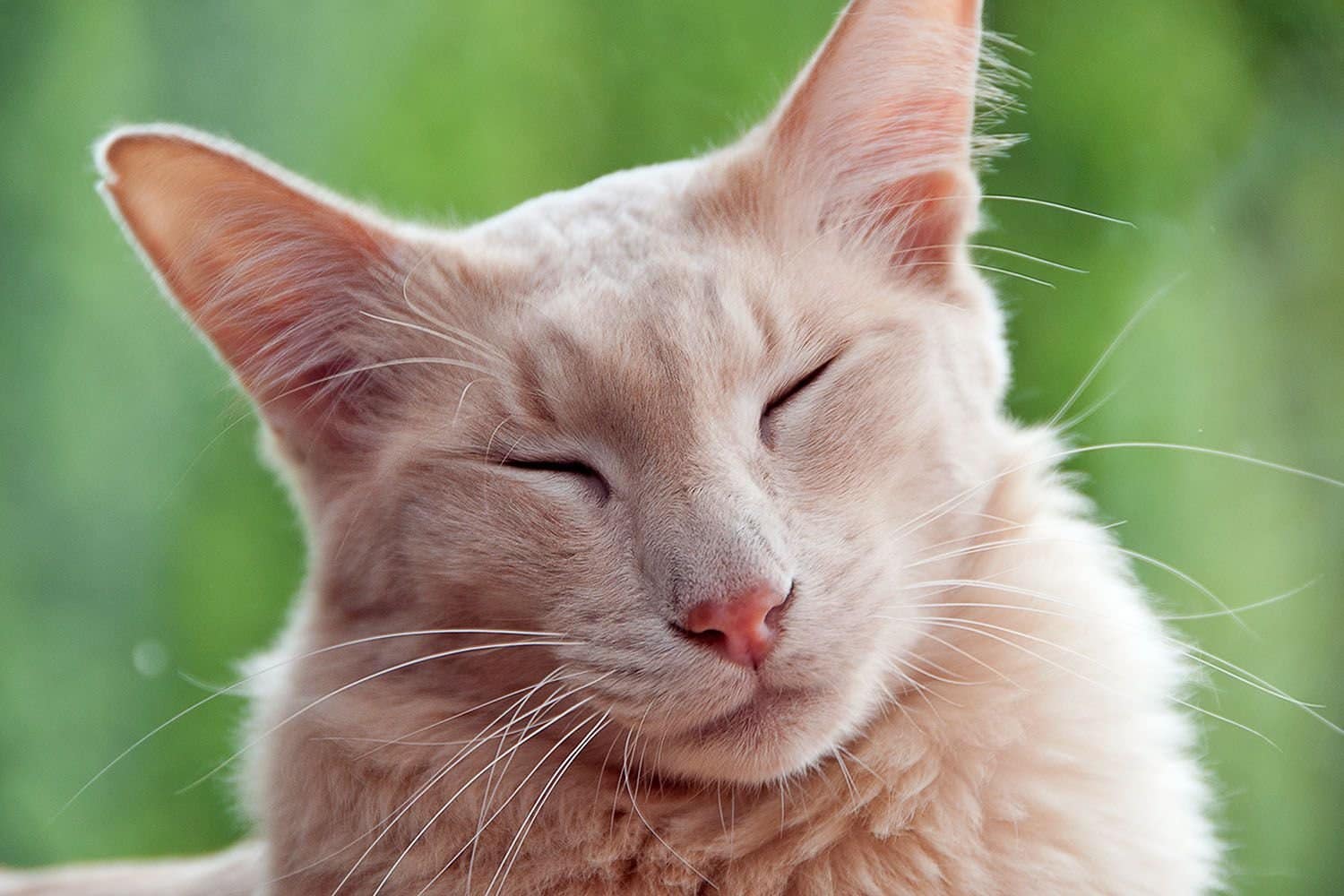
Their Unique Charm
The Javanese cat, sometimes called the Colorpoint Longhair, is another close relative of the Siamese – think of them as a long-haired version of a Siamese with a dash of their own flair.
What’s interesting is that even with their silky semi-long coat, Javanese are considered hypoallergenic by many experts. This is because they have only a single coat (no fluffy undercoat), so they shed much less than other long-haired breeds. Less shedding means less dander and allergens spreading around, a big plus if you have allergies.
To the touch, their coat is soft and fine, and while they do need regular brushing to prevent tangles, they won’t leave clumps of hair on your sofa. Personality-wise, Javanese cats are playful, intelligent, and extremely people-oriented. In fact, they are quite vocal about their desire for attention – these are cats that will trill and meow to communicate with you, telling you all about their day.
Many Javanese have a bit of a mischievous streak; they love interactive toys and will make a game out of anything. And when it comes to affection, the Javanese is all-in: they form strong attachments to their owners and prefer to be by your side (or on your lap) as much as possible.
Essentially, they inherited the devoted, human-loving nature of the Siamese line. Keep in mind, with that loyalty can come a bit of demand – Javanese cats might become unhappy if they feel ignored.
Is This Your SnuggleSoul?
A Javanese could be your dream cat if you desire a constant companion who’s playful and affectionate in equal measure. We often say this breed is great for individuals or families who want a pet that will actively engage with them.
Are you the kind of person who talks to your pets? Your Javanese will definitely “answer” back. Want a cat that greets you at the door? A Javanese will be right there, probably weaving between your legs and purring enthusiastically.
On the flip side, if you know your lifestyle is very busy and away-from-home, you might find a Javanese getting anxious or bored without you. In that case, consider having two cats to keep each other company (perhaps two Javanese, or a Javanese and another hypoallergenic breed buddy).
From an allergy standpoint, many people find Javanese easier on their symptoms than heavy-shedding cats – you won’t be finding hair everywhere, and their dander distribution is lower due to that single coat. Just remember to give them that brushing a few times a week to keep their coat in top shape and capture any loose hairs.
All in all, if you’re ready for a devoted, talkative sidekick who will bring endless joy and activity to your life, the Javanese may be the one to win your heart.
Read more about Javanese
Siamese

Their Unique Charm
The Siamese is a true classic – one of the most recognizable and beloved cat breeds in the world – and it’s a happy bonus that they’re often considered easier on allergies. Siamese cats have a short, fine coat that doesn’t shed heavily.
While no cat is completely hypoallergenic, Siamese fur typically means fewer allergens are released via shedding, making them a popular choice for people who sneeze around fluffier felines. But the real allure of the Siamese lies in their vibrant personality.
These cats are famously vocal and expressive. They will tell you exactly what’s on their mind with a wide range of meows and yowls (sometimes quite loudly!).
They’re also incredibly affectionate and human-focused – Siamese form deep bonds with their owners and love to be involved in every aspect of your life. You’ll find your Siamese wants to be on your lap, on your bed, or at least in the same room as you at all times.
Visually, Siamese are striking with their sleek bodies, seal-point (or blue-point, etc.) markings, and bright blue almond-shaped eyes that always seem full of curiosity. Grooming needs are minimal – an occasional brush or petting with a grooming glove will catch the little hair they shed, but you usually won’t notice much fur around your house with a Siamese.
Is This Your SnuggleSoul?
If you want a devoted, talkative, and playful companion, the Siamese could be the cat for you. They are wonderful for owners who desire a really interactive pet experience; a Siamese is not a background cat – they’re a full-fledged family member who will involve themselves in everything.
They do great with families (including kids, as long as the kids are gentle) because they’re social butterflies and usually don’t shy away from activity. However, Siamese do demand attention. They are known to become lonely or anxious if left alone frequently.
If your home is empty most of the day, a Siamese might not be the best fit unless you consider getting them a feline companion. On the other hand, if you work at home or there’s usually someone around, a Siamese will be content as long as they have a lap to sit on and someone to talk to.
They are also a good choice if you like the idea of training and truly engaging with your cat – Siamese are smart and can be taught fun tricks or to walk on a leash, which can deepen your bond.
For allergy-sensitive folks, many find Siamese to be manageable, especially compared to long-haired breeds, since Siamese don’t shed much and have less hair to carry allergens.
In summary, if you’re ready for a high-energy, highly affectionate cat that will talk your ear off and snuggle in equal measure, the Siamese might be your ultimate snuggle soul mate.
Read more about Siamese
Bengal

Their Unique Charm
For those who want a touch of the wild in their living room – with the temperament of a loving house cat – the Bengal is an unbeatable choice. Bengals are known for their exotic, leopard-like coat and high intelligence.
Their short, glittery coat has a unique texture more like a pelt than typical cat fur, and anecdotally, many Bengal owners report very minimal shedding.
In fact, Bengals generally don’t shed a lot, which is one reason they’re often recommended to people with allergies. Less shed fur means fewer allergens released into your home environment. What also sets Bengals apart is their boundless energy and playfulness.
These cats are athletes. They love to climb, jump, and sprint – a Bengal will race down the hallway after a toy like a little cheetah. They’re also famous for their love of water; don’t be shocked if your Bengal joins you at the sink or even in the shower!
With their agile bodies and curious minds, they open drawers, learn how to turn on faucets, and generally find ways to explore everywhere.
Despite their wild ancestry (early generations come from crossing domestic cats with Asian leopard cats), today’s Bengal is a sweet and affectionate pet with proper socialization.
They often bond strongly with their families and enjoy interactive affection (some Bengals will give gentle love nips or head-butts to show they care). They may not be the stereotypical “lap cat” that snoozes all day, but many will settle down next to you once their energy is expended.
Is This Your SnuggleSoul?
A Bengal could be your snuggle soul if you’re excited about a high-energy, intelligent cat and you’re prepared to provide lots of engagement.
We often recommend Bengals to experienced cat owners or very active families because these cats thrive with stimulation and can become mischievous if bored.
If you have kids, a Bengal can be a great playmate as long as the children are taught to respect the cat’s boundaries (because Bengals will definitely play back, sometimes with enthusiastic pounces!).
For someone who works long hours or travels a lot, a Bengal might not be ideal unless you have another pet to keep them company – they need interaction daily, whether it’s you or another furry friend.
In terms of allergies, many people with moderate allergies have found Bengals to be a good match, since their grooming habits and low shedding mean fewer allergens around. You’ll still want to vacuum and perhaps use air filters, but the Bengal’s coat is one of the easier types to manage regarding allergens.
Once you welcome a Bengal into your home, be ready for a dynamic and loving companion. They might trade off laps for playtime, but when a Bengal looks into your eyes or gently head-butts you, you’ll know you’ve made a friend for life.
For the right person – one who wants an active, engaging, beautiful feline friend – a Bengal truly delivers a lifetime of excitement and snuggles.
Read more about Bengal
Our Promise to You: A Lifetime of Snuggles
At SnuggleSouls, our mission is to help you find a cat that fills your life with warmth, love, and of course, plenty of snuggles. We know that choosing a hypoallergenic breed is about more than just avoiding sneezes – it’s about finding a companion whose personality and needs mesh with your own.
Whether you’re an experienced cat parent or about to welcome your very first kitten, we’re here to guide you every step of the way. We’ve shared our knowledge and insights on these wonderful breeds because we believe an informed decision leads to the happiest pet-human relationships.
No matter which breed (or rescue kitty mix) you fall in love with, our promise is to support you with reliable information, helpful tips, and a community that cares. Here’s to a future full of purrs, playtime, and lifelong snuggle sessions with your new feline friend!
Want to learn more?
Check out our Beginner’s Guide to Cat Adoption for tips on bringing a new cat home, or explore our Cat Breed Encyclopedia for deeper dives into each breed’s personality and care needs.
Our resources are built to help you become the best cat parent you can be. Knowledge is love in action – and we’re thrilled to help you on your quest to love your cat even better.
Find Your Purr-fect Match Among All Cat Breeds
At SnuggleSouls, we believe every cat deserves a forever home—and every cat lover deserves the perfect feline companion. Whether you’re drawn to the charm of small cat breeds, the balanced nature of medium cats, or the majestic presence of large cat breeds, we’ve got detailed guides to help you choose wisely.
Prefer grooming to be a breeze? Check out our picks for shorthair cat breeds, hairless cats, and low-shedding breeds. Longing for luxurious coats? Our longhair cat breed guide might just melt your heart.
If you or your family members have allergies, don’t worry—we’ve also curated a trusted list of hypoallergenic cat breeds that might work better for sensitive households.
Explore all our breed guides to find the snuggle soul that’s truly meant for you.
FAQ
Are hypoallergenic cats completely allergy-free?
No cat is 100% allergy-free. Hypoallergenic breeds produce lower amounts of the Fel d 1 protein or shed less, which reduces the spread of allergens. While they may cause fewer reactions, it’s still important to spend time with a cat before adopting.
Which hypoallergenic cat breed is best for severe allergies?
Breeds like the Siberian, Balinese, Russian Blue, and Devon Rex are often reported to be better tolerated by people with moderate to severe cat allergies due to their lower Fel d 1 levels or minimal shedding.
Do hairless cats like the Sphynx cause allergies?
Sphynx cats don’t shed fur, which reduces allergen spread, but they still produce allergenic proteins in their saliva and skin. Regular bathing helps manage this. Many people with allergies find them more tolerable, but not risk-free.
What can I do to reduce cat allergens at home?
Use HEPA air filters, vacuum frequently, groom your cat regularly (or bathe if hairless), and keep your bedroom a cat-free zone. Some people also use special cat diets or wipes to reduce allergens on the fur.
Can I adopt a cat if I have allergies?
Yes, many people with mild to moderate allergies successfully live with hypoallergenic cats using allergy management strategies. Consider allergy testing, meet the breed in person first, and prepare your home with allergen-reducing tools.

